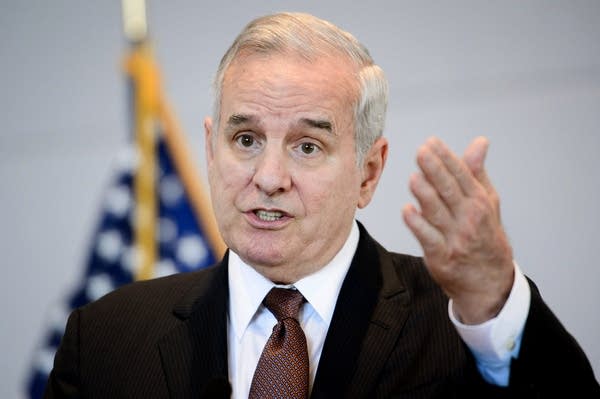Dayton, GOP talk special session, but no one's feeling special

Gov. Mark Dayton and legislative leaders are set to meet again today to talk about a possible special session, but even Dayton now acknowledges the prospects are fading.
Glen Stubbe | Star Tribune via AP 2015
Go Deeper.
Create an account or log in to save stories.
Like this?
Thanks for liking this story! We have added it to a list of your favorite stories.


